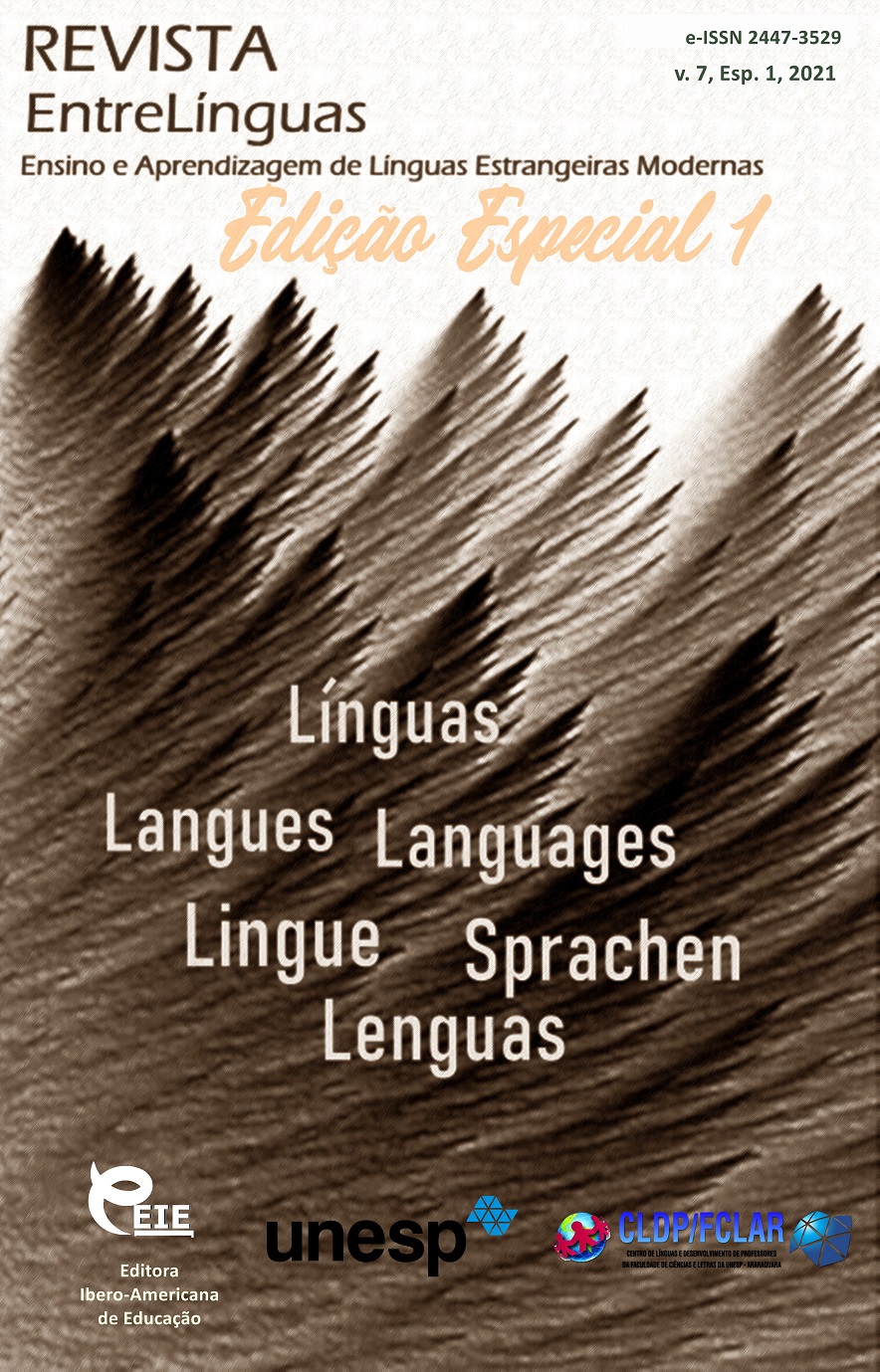Lingua-pragmatic characteristics of bilingualism coverage in media discourse of Tatarstan
DOI:
https://doi.org/10.29051/el.v7iEsp1.14876Keywords:
Media discourse, Bilingualism, Linguistic identity, Pragmatic settings, Language policyAbstract
The article represents the results of the Tatar media discourse analysis aimed to the defining the lingua-pragmatic characteristics of bilingualism coverage and pragmatic settings of the Tatar linguistic identity as well (in relation to regional and individual bilingualism), as media discourse has “exclusive suitability […] in researches on bilingual linguistic identity discourse” (ANTONOVNA; RISHATOVNA; GUMEROVNA, 2019). Having analyzed 50 newspaper articles and 16 posts (all found) in social network Vkontakte (VKONTAKTE vk.com). with bilingualism as the central topic, the authors came to the following conclusions about the peculiarities of bilingualism coverage in Tatar media discourse: in traditional media discourse the problem of bilingualism is widely covered, while in Tatar internet discourse it finds rather weak coverage, but much more emotional (as the topic is raised by speakers with strong national identity only). Due to the fact that “Russian is still the prevalent functional language in all spheres of language use in Tatarstan” (VESSEY, 2013). both in traditional media discourse and internet discourse the use of the Tatar language in all spheres of life is understood as bilingualism, not the coexistence of the two official languages of the Republic, though the recognition of bilingualism as the part of national identity also takes place. The actual position of the Tatar language is stated not legitimate and both the government of the Republic and the ordinary native speakers are to be blamed for it. It is frequently mentioned that the development of harmonious bilingualism in Tatarstan requires the adoption of additional legislative measures, strict control over their compliance, wider and better implementation of the Tatar language in the educational and legislative processes, holding events in support of the tatar language, etc. in internet discourse, the problem of bilingualism in family circle is also raised.
Downloads
References
ANTONOVNA, T. E.; RISHATOVNA, M. A.; GUMEROVNA, S. A. Media discourse as research material for bilingual linguistic identity studies. Revista Inclusiones. v. 6, p. 752-758, 2019.
VESSEY, R. Language ideologies and discourses of national identity in Canadian newspapers: a cross-linguistic corpus-assisted study. Queen Mary: University of London, 2013.
WIGGLESWORTH-BAKER, T. Language policy and post-Soviet identities in Tatarstan. Nationalities Papers, v. 44, n. 1, p. 20-37, 2016.
НУРУТДИНОВА, А. Н. Дискурс многоязычия в прессе и Интернет-ресурсах Татарстана. Вестник экономики, права и социологии, n. 2, 2018.
Downloads
Published
How to Cite
Issue
Section
License

This work is licensed under a Creative Commons Attribution-NonCommercial-ShareAlike 4.0 International License.
Os manuscritos aceitos e publicados são de propriedade da Revista EntreLínguas. Os artigos publicados e as referências citadas na Revista EntreLínguas são de inteira responsabilidade de seus autores.
Transferência de direitos autorais – autorização para publicação
Caso o artigo submetido seja aprovado para publicação, já fica acordado que o(s) autor(es) autoriza(m) a UNESP a reproduzi-lo e publicá-lo na EntreLínguas, entendendo-se os termos “reprodução” e “publicação” conforme definição respectivamente dos incisos VI e I do artigo 5° da Lei 9610/98. O artigo poderá ser acessado pela rede mundial de computadores (Internet), sendo permitidas, a título gratuito, a consulta e a reprodução de exemplar do artigo para uso próprio de quem a consulta, desde que haja a citação ao texto consultado. Essa autorização de publicação 328 EntreLínguas, Araraquara, v. 1, n .2, p. 323-328, jul./dez. 2015 não tem limitação de tempo, ficando a UNESP responsável pela manutenção da identificação do(s) autor(es) do artigo. Os artigos publicados e as referências citadas na Revista EntreLínguas são de inteira responsabilidade de seus autores.











